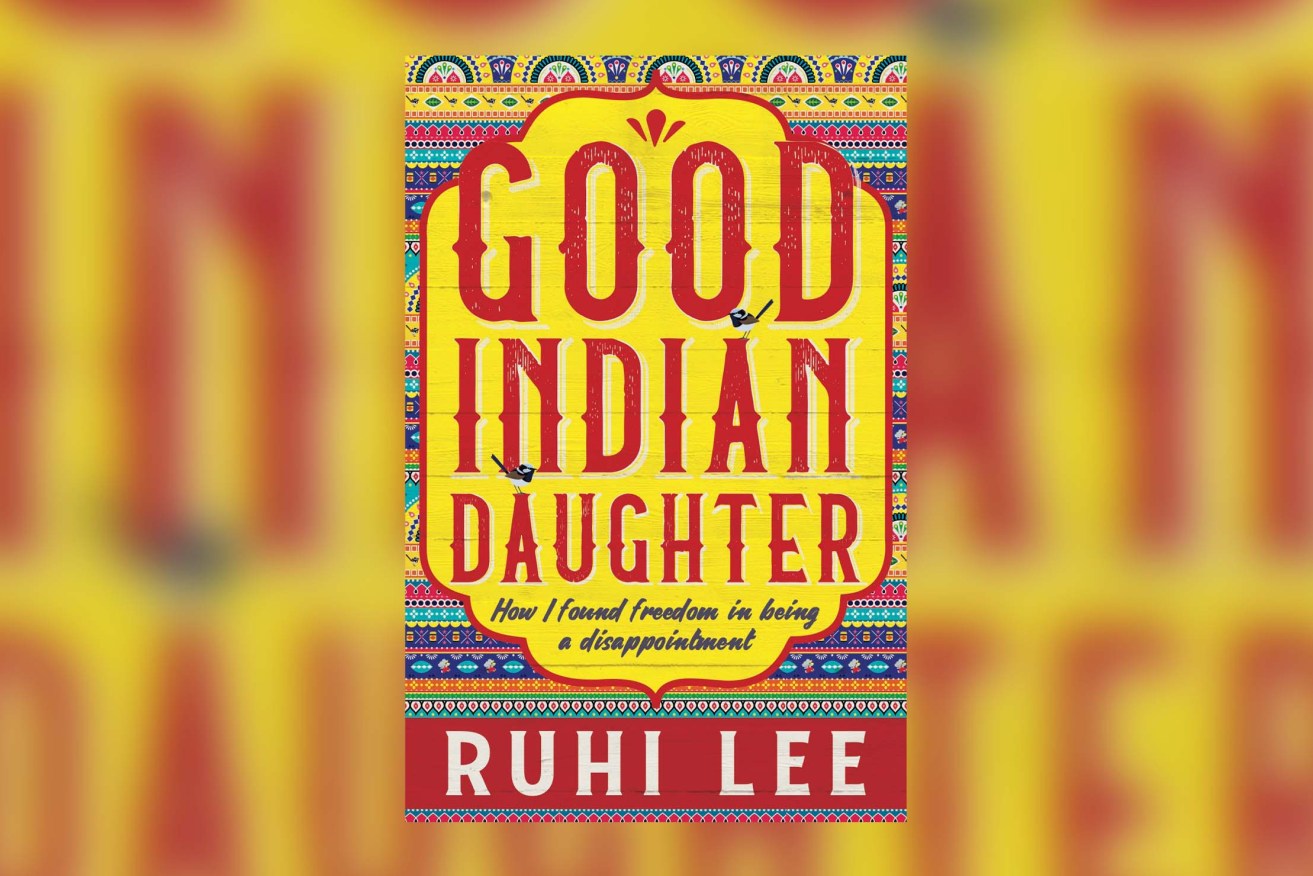Book review: Good Indian Daughter
Good Indian Daughter is a courageous memoir by an unapologetic writer who masterfully balances humour with the complexity of cultural conflict and family chaos.


Ruhi Lee’s memoir in an exploration of identity, trauma, and her strained relationship with the archetype of the “good Indian daughter”.
Growing up in suburban Melbourne, in an Indian household surrounded by a migrant community, Lee’s childhood and adolescence was spent navigating the divide between her home life and broader Australian life. In her late 20s, after discovering she was pregnant with a girl, she decided to address the ordeals of her past, all of which stemmed from generational, cultural and personal conflicts and expectations.
Good Indian Daughter moves thematically between Lee’s upbringing and the present day. She offers various entrance points for readers: cooking, to highlight connection to culture and family; spirituality, as both a confinement and sanctuary; the burden and passion associated with education; cultural constructs of mental health and wellbeing; and taboos of sex and gender, which provide the most humorous and heartbreaking of scenes.
The author’s talent for comedic delivery makes the book a pleasure to read. Even the darkest passages are decorated with humour and wit.
The anecdotes in Good Indian Daughter paint a nuanced portrayal of both the Indian migrant and the broader migrant experience. As My Big Fat Greek Wedding speaks loudly to a plethora of migrant communities in America, Good Indian Daughter depicts cross-cultural and intergenerational conflicts experienced by many in Australia. What sets it apart is how Lee specifically deconstructs the oppressive and unachievable label of “good” that is often prescribed to women.
While she speaks her truth and vocalises her grievances, she does so with love and respect for her family and culture. Her ability to reflect on the deeply flawed but consistently loving and redeemable people in her life humanises the story and leaves readers feeling joy, anger, affection and heartbreak, all at once. No character in Good Indian Daughter is perfect, including Lee herself, which makes the book painfully relatable.
By unpacking the cultural and gendered stereotypes that leave women submissive and compliant, Lee both empowers and horrifies readers. Giving language and validity to these experiences allows Good Indian Daughter to make space for layered and hopeful conversations about how culture, family and individuality do not have to be mutually exclusive.
Good Indian Daughter, by Ruhi Lee, is published by Affirm Press. Lee will be a guest at OzAsia Festival’s In Other Words writing and ideas program next month, speaking alongside fellow memoir author Mimi Kwa (House of Kwa) in a session titled Fathers and Daughters.




